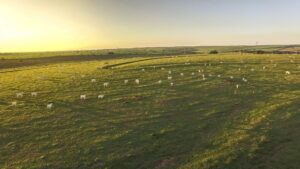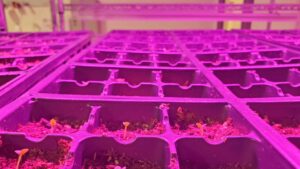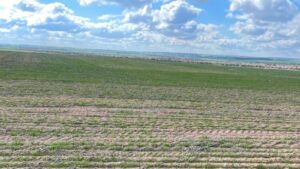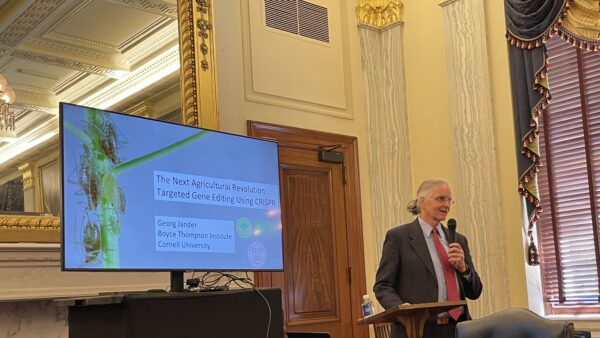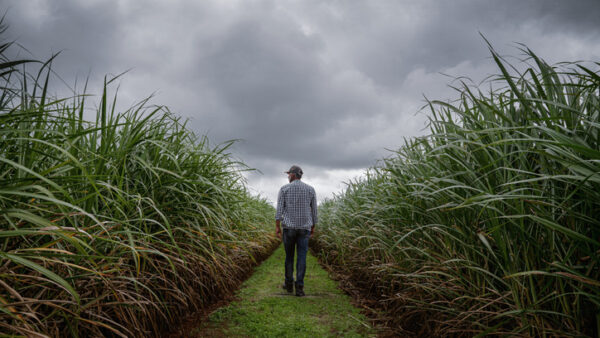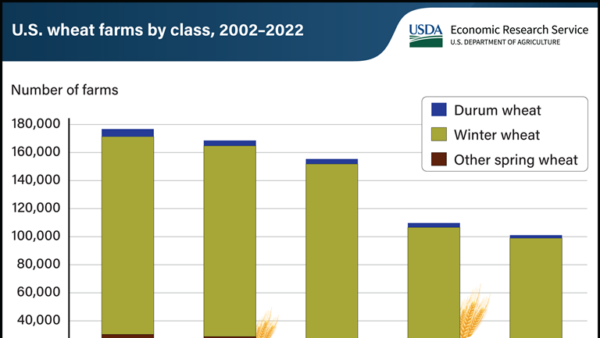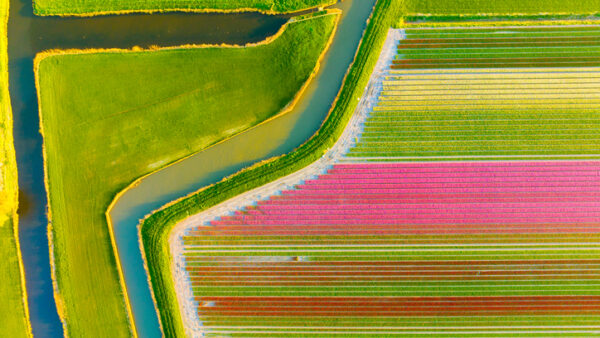If you have been reading my columns, you may have heard me talking quite a lot about COVID-19 — but you might not know anything about my background! So, I thought we’d take a break from all the COVID talk for me to tell you a bit more about myself and what I do.
My interest in agriculture began young — I grew up on a dairy farm in one of the southern states of Australia. From there, I went to study agriculture at university, which was where I found my passion in plant breeding.
I like to think the mystery in life is to do something as a job that you were born to do. For me that was plant breeding.
I also had a passion in overseas aid work. Growing up in Australia, I was lucky enough that everything came easy to me. I always felt — after growing up so easily — that I owed something back to my global community, so I tried to repay it with overseas volunteer work. After I came back from a year teaching agriculture in Samoa, I began my postgrad studies to become a plant breeder.
In my studies, I realized was the skill of plant breeding was a dying art. In my plant breeding lectures at university, there was only 5 students total. The year after I graduated, the class was stopped due to lack of interest. One of the only things students hear about plant breeding these days is about GMO and molecular techniques that are performed in the laboratory. Students don’t really think of plant breeding as being and exciting job.
After I finished my studies, I looked for jobs in pasture breeding, which was the focus of my master’s. In Australia, there were no opportunities as public breeding programs were closing down and most of the pasture varieties in Australia were being bred overseas. This didn’t daunt me, because if you look at the climate change predictions it showed that Australia was going through more rapid drying and heating than where our pasture varieties were coming from. I knew I just had to wait it out till companies realized these trends. That company was Valley Seeds and 12 years ago I started my pasture breeding career with them to today.
In the meantime, I had been pondering about the question of how to encourage more students to take up plant breeding. The generation of plant breeders that was created during the green revolution were retiring, and I was worried that their vast knowledge would be lost as there wasn’t the next generation to take it on. I remember going to a talk from Cary Fowler, the founder of the Svalbard Global Seed Vault, on preserving the world’s germplasm. I asked him if he could keep 1/3 of its space for me and he questioned me why? I told him that in Australia there is only 1/3 of the plant breeders of what we had 30 years ago, so I needed to freeze the ones that we had left so that they would be around when the breeding work on seed was needed.
Sometimes we look at segments of problems and not the whole picture. It was from there I though of the concept of Plant Breeders Without Borders (PBWOB). It was a molding together of my two passions in life, plant breeding and overseas aid work. The idea was to get plant breeders to volunteer their time to work in developing countries teaching smallholder farmers about how to develop their own varieties of underutilized crops. Underutilized crops are plants that have had minimal research and plant breeding done on them in that environment. These underutilized crops are important to the local people but there are no seed companies working on them so PBWOB is not stifling the development of a seed industry within the country. In a way it is promoting the locals to start their own seed businesses with that crop as they own the varieties that are developed from the program. The projects also have a student component. Local students come along to the training as well as a student from western countries so they can see how much of an adventure plant breeding can be.
So, after 15 years of getting the idea started PBWOB has got a Bayer as a sponsor and has completed three projects in Ethiopia, Indonesia and Nepal with another four projects planned once things return to normal after COVID-19. Hopefully the idea will stimulate the development of new plant breeders around the world that will create the new varieties of plants that are more adapted to climate change.



